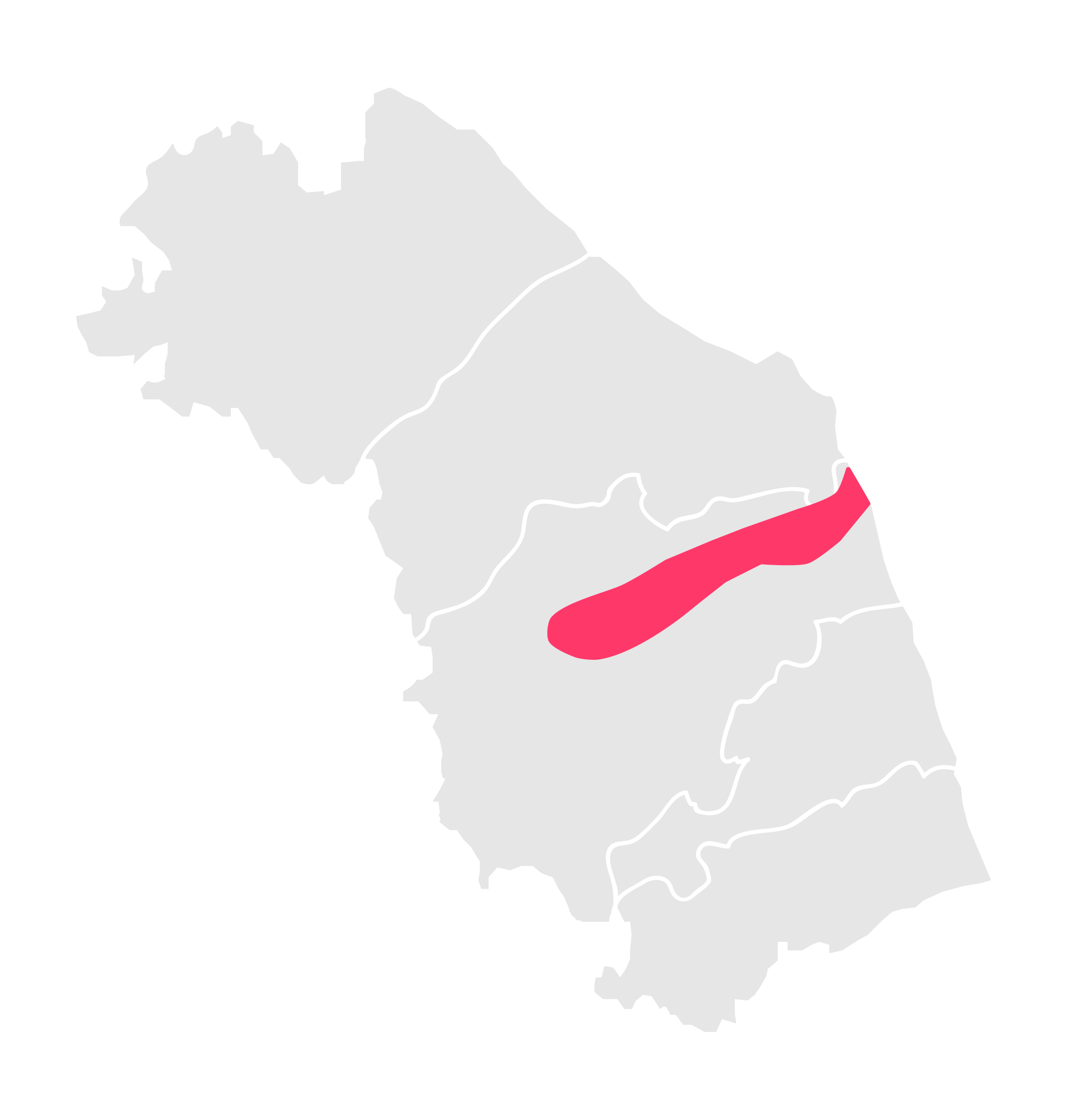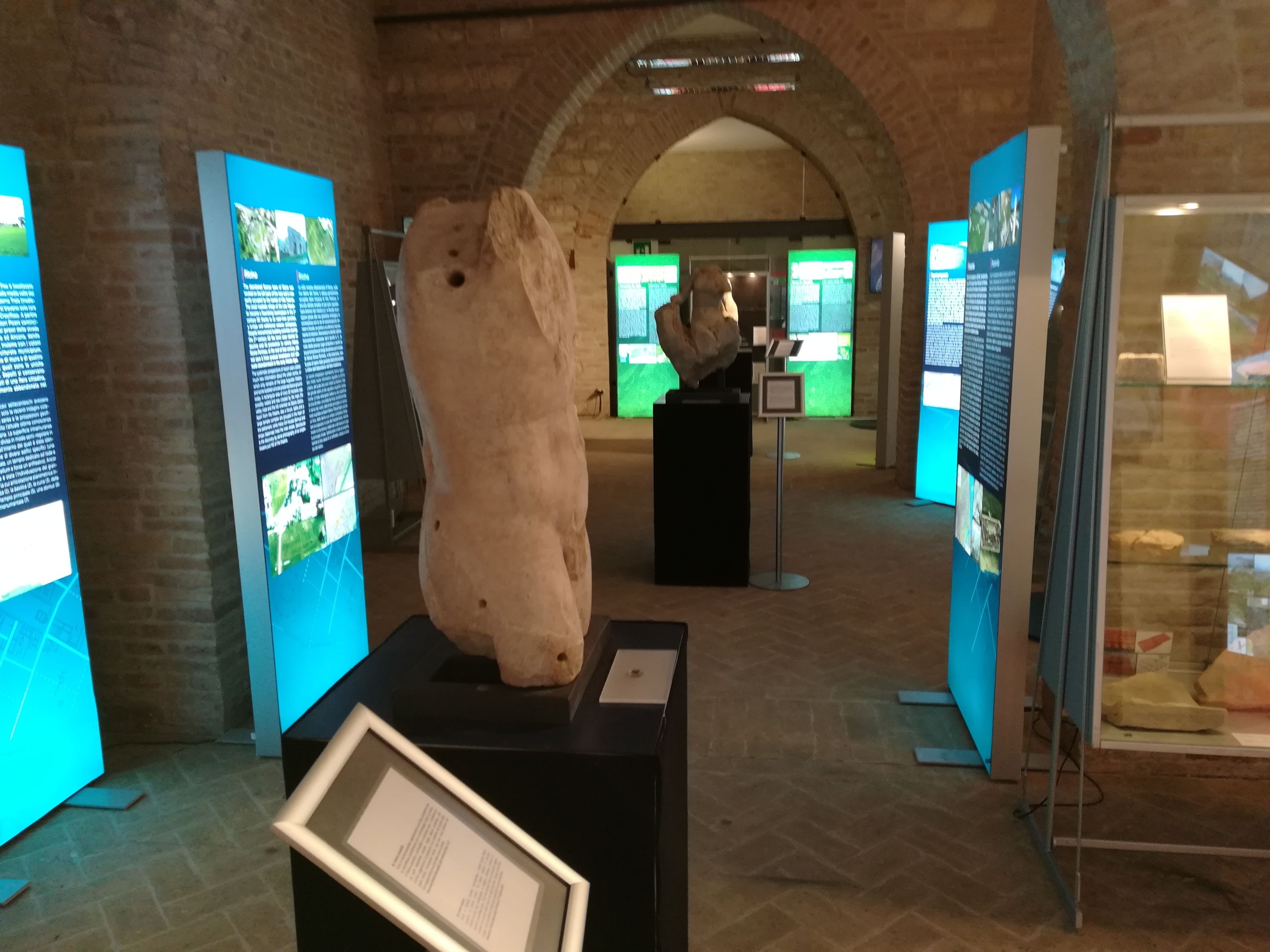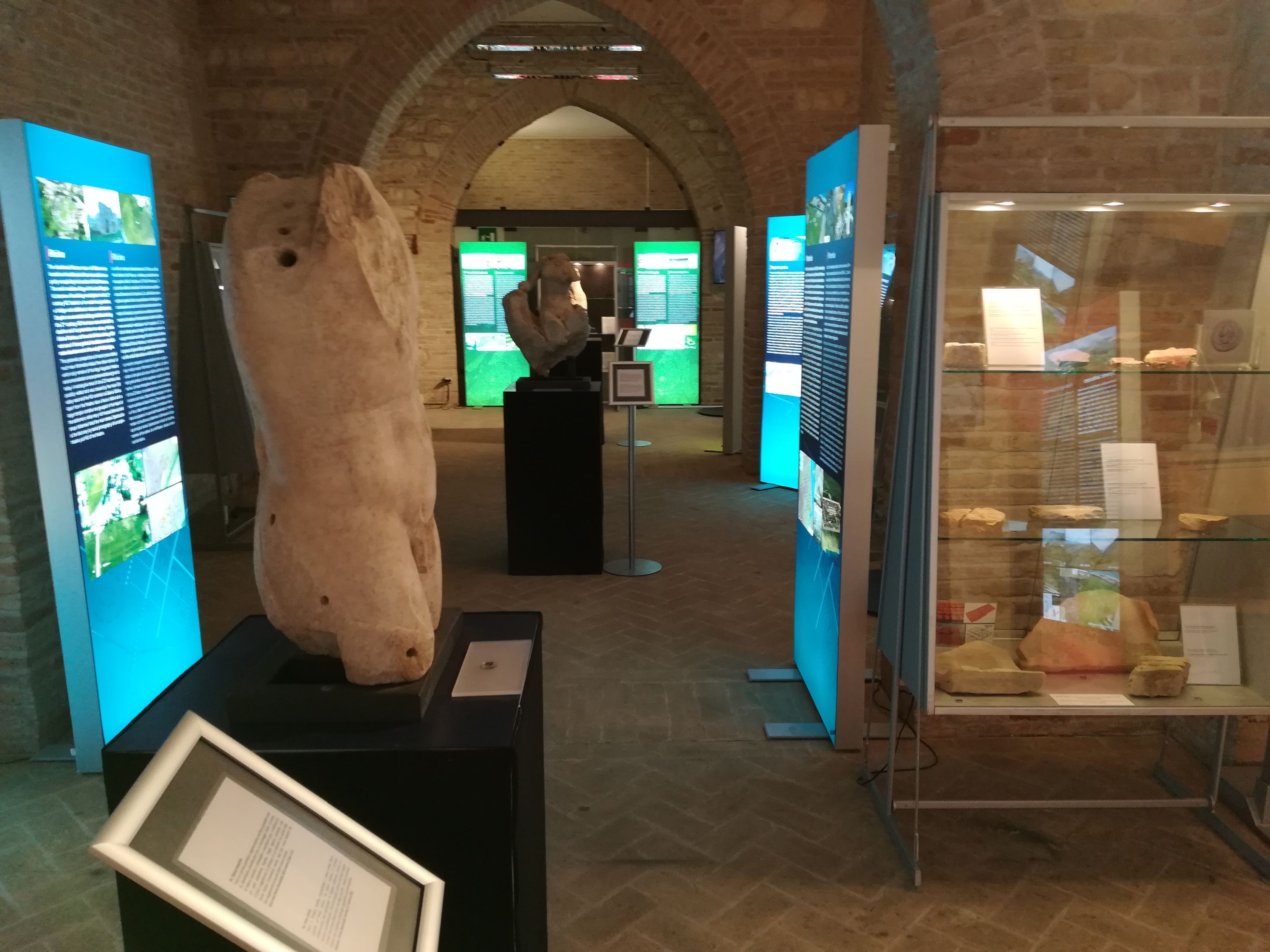
On the ground floor of the beautiful Swabian castle of Porto Recanati there is the exhibition "History of a revealed landscape" focused on a selection of finds from the main sites of the Roman age of the valley of the river Potenza (the ancient Flosis), with particular regard to the town of Potentia, whose site falls within the territory of the municipality of Porto Recanati. The exhibition was created by the University of Ghent and the Superintendence of Archeology, Fine Arts and Landscape of the Marche and aims to present the results of research and excavations conducted in this area since 2000 by university itself. The exhibition, characterized by a detailed educational and multimedia system, is focused on a selection of finds from the sites of Potentia (Porto Recanati), Trea (Treia) and some rural sites in the territory of the Potenza valley. The exhibits on display, dating from the third century BC until late antiquity, include fragments of architectural elements and decorations, building materials, objects of common use, fragments of ceramics, among which very interesting are those from the city of Potentia, and elements in bronze and bone. Stand outs among the interesting sculptural materials on display are a statuette of a female bust dressed in a tunic, perhaps belonging to a sculptural group depicting Eros and Psyche, datable to the second century BC, and a small statue depicting a deity sitting on a rock, represented as a young nude, perhaps representing Apollo or Dionysus and probably dating back to the 2nd -1st c. BC; both findings are from the Potentia site.
We have found no place to eat in the vicinity
We have found no place to sleep in the vicinity
Da Pesaro a San Benedetto del Tronto, lungo la costa Adriatica, alla scoperta dei principali porti e approdi frequentati dall’età del bronzo a oggi. Alla foce di fiumi e torrenti, entro piccole baie, promontori e grandi insenature, si svilupparono nell’antichità porti, porti canale, empori o semplici approdi. Questi scali furono il fulcro di una fitta rete di commerci marittimi che hanno dato vita a un intenso dialogo tra oriente e occidente, testimoniato dai ritrovamenti di reperti provenienti da tutto il bacino del Mediterraneo.
Nelle zone di confine dell’entroterra marchigiano i principi umbri di Camerino vivevano a contatto con numerosi villaggi, anch’essi retti da principi guerrieri piceni. I pregevoli corredi delle necropoli, risalenti alla fine dell’VIII - inizi VI sec. a.C., documentano i fitti scambi con l’oriente greco e con l’Etruria e attestano il ruolo cruciale di queste popolazioni nei traffici mercantili tra Adriatico e Appennino, che essi controllavano e da cui traevano le loro ricchezze.

|
Address | Piazza Brancondi Porto Recanati |

|
Phone Number | (+39) 0717591283 |

|
Opening Time | Dal Martedì alla domenica dalle 9:30 alle 12:30. Dal Martedì al Venerdì 15 - 18. Sabato e Domenica 17 - 20 |

|
Visit Time | 30 min |

|
Entrance Fee | Gratuito |

|
Reservation Required | no |

|
Viabilities | Salaria Gallica |

|
Bookshop | no |

|
Free Guided Tour | yes |

|
Guided Tour | no |

|
Parking | no |

|
Disabled Accessibility | no |

|
Audioguide | no |

|
Didactic Rooms | no |

|
Conference room | no |

|
English language | yes |

|
Public Transport | Trasporto pubblico urbano solo nel periodo estivo |

|
Family Services | no |

